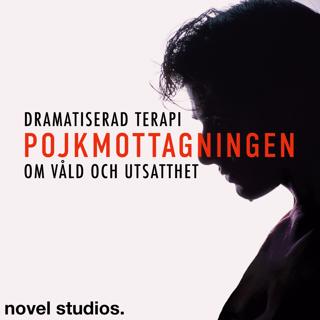
Matilde Masso, "Contested Money: Towards a New Social Contract" (Routledge, 2023)
Discussing money is always accompanied by controversy as well as enchantment. Debating what money is and how it performs its main functions in the contemporary economy is fundamental to understanding the social consequences of money transformation associated with the digital revolution. This book explores the links between the current and prospective properties of money, its production, and its relationship to the concepts of value, the common good, and innovation. Contested Money: Towards a New Social Contract (Routledge, 2023) opens a debate on the role that money could play in a different paradigm based on a renewed conception of monetary properties and functions that are capable of having a positive impact on social and individual welfare. Massó outlines the fundamentals of this monetary model, which would operate as a parallel currency, where the processes of monetary and value creation are connected in a new deal between the citizen and the state, grounded on an approach of reciprocal rights and responsibilities. This book will appeal to scholars, students, and, more broadly, readers interested in a contemporary understanding of what money is, how it is being transformed, and the role that it can play in redefining the twenty-first-century social contract. Matilde Massó is an Associate Professor of Sociology in the Department of Sociology and Communication Sciences at the University of A Coruña (UDC). Her main research interests focus on the transformations of money, the role of culture and emotions in economic processes, and how technological innovation is shaping a new conception of the economy concerning theories of justice. She has extensive experience leading research projects in economic sociology, particularly in financialization studies, the sociology of money, and financial innovation. Her recent publications include Contested Money (Routledge, 2024) and Why Money Matters? (Journal of Economic Issues, 2023). Additionally, she was awarded a Marie Curie IF Action in 2016. Learn more about your ad choices. Visit megaphone.fm/adchoices Support our show by becoming a premium member! https://newbooksnetwork.supportingcast.fm/critical-theory
25 Okt 202449min

Deborah Valenze, "The Invention of Scarcity: Malthus and the Margins of History" (Yale UP, 2023)
A radical new reading of eighteenth-century British theorist Thomas Robert Malthus, which recovers diverse ideas about subsistence production and environments later eclipsed by classical economics With the publication of Essay on the Principle of Population and its projection of food shortages in the face of ballooning populations, British theorist Thomas Robert Malthus secured a leading role in modern political and economic thought. In this startling new interpretation, Deborah Valenze reveals how canonical readings of Malthus fail to acknowledge his narrow understanding of what constitutes food production. Valenze returns to the eighteenth-century contexts that generated his arguments, showing how Malthus mobilized a redemptive narrative of British historical development and dismissed the varied ways that people adapted to the challenges of subsistence needs. She uses history, anthropology, food studies, and animal studies to redirect our attention to the margins of Malthus’s essay, where activities such as hunting, gathering, herding, and gardening were rendered extraneous. She demonstrates how Malthus’s omissions and his subsequent canonization provided a rationale for colonial imposition of British agricultural models, regardless of environmental diversity. By broadening our conception of human livelihoods, Valenze suggests pathways to resistance against the hegemony of Malthusian political economy. The Invention of Scarcity: Malthus and the Margins of History (Yale UP, 2023) invites us to imagine a world where monoculture is in retreat and the margins are recentered as spaces of experimentation, nimbleness, and human flourishing. Deborah Valenze is the Ann Whitney Olin Professor of History at Barnard College. A recipient of numerous fellowships, she has written four previous books on British culture and economic life. She lives in Cambridge, MA, and New York City. Morteza Hajizadeh is a Ph.D. graduate in English from the University of Auckland in New Zealand. His research interests are Cultural Studies; Critical Theory; Environmental History; Medieval (Intellectual) History; Gothic Studies; 18th and 19th Century British Literature. YouTube channel. Twitter. Learn more about your ad choices. Visit megaphone.fm/adchoices Support our show by becoming a premium member! https://newbooksnetwork.supportingcast.fm/critical-theory
24 Okt 20241h 9min

The End of White Politics: How to Heal Our Liberal Divide
In early June 2020, Christina Gessler and Zerlina Maxwell met remotely to discuss Maxwell’s soon-to-be-released book. This episode is an encore presentation of that discussion. As we watch the race to the 2024 United States presidential election, we revisit this conversation from four years ago to reconsider lessons learned and those ignored in the race to the 2020 presidential election. Today’s book is: The End of White Politics: How to Heal Our Liberal Divide (Legacy Lit, 2020), by Zerlina Maxwell, which examines the past and present problems of the Left. After working on presidential campaigns for Barack Obama and Hillary Clinton, Maxwell gained first-hand knowledge of what liberals have and have not been doing right over the past few elections. Ultimately, these errors worked in President Donald Trump's favor in 2016; he ran a campaign on white identity politics, successfully tapping into white male angst and resistance. In 2020, after the Democratic Party's most historically diverse pool of presidential candidates dwindled down to Joe Biden, once again an older white man, Maxwell asked: what now, liberals? Fueled by Maxwell's trademark wit and candor, The End of White Politics dismantles the problems of the Left, challenging everyone from young "Bernie Bros" to power players in the "Billionaire Boys' Club." Whether tackling the white privilege that enabled Mayor Pete Buttigieg's presidential run, the controversial #HashtagActivism of the Millennial generation, the massive individual donations that sway politicians toward maintaining the status quo of income inequality, or the lingering racism that debilitated some Democratic presidential contenders and cut their promising campaigns short, Maxwell pulls no punches in her critique. Underlying all of these individual issues, Maxwell argues, is the "liberal-minded" party's struggle to engage women and communities of color, and its preoccupation with catering to the white, male working class that threatens to be its most lethal shortfall. Our guest is: Zerlina Maxwell, the host of Mornings with Zerlina on Sirius XM, and the Director of Progressive Programming for SiriusXM. She was the Director of Progressive Media for Hillary Clinton’s 2016 presidential campaign, and acted as a campaign spokesperson for the Presidential Debates. She writes for a variety of national media outlets, is a frequent college campus speaker, and is the author of The End Of White Politics: How To Heal Our Liberal Divide. She has a law degree from Rutgers Law School Newark and a B.A. in International Relations from Tufts University. Our host is: Dr. Christina Gessler, the producer of the Academic Life podcast. She holds a PhD in history, which she uses to explore what stories we tell and what happens to those we never tell. Welcome to Academic Life, the podcast for your academic journey—and beyond! You can support the show by posting, assigning or sharing episodes. Join us again to learn from more experts inside and outside the academy, and around the world. Missed any of the 225+ Academic Life episodes? You’ll find them all archived here. Learn more about your ad choices. Visit megaphone.fm/adchoices Support our show by becoming a premium member! https://newbooksnetwork.supportingcast.fm/critical-theory
24 Okt 20241h 14min

Adam Greenfield, "Lifehouse: Taking Care of Ourselves in a World on Fire" (Verso, 2024)
In Lifehouse: Taking Care of Ourselves in a World on Fire (Verso, 2024), Adam Greenfield presents a compelling vision for collective resilience in an age of perpetual crisis. As we grapple with what Greenfield terms the "Long Emergency"—an era marked by cascading disasters from pandemics to climate-driven catastrophes—this timely book explores how we might reclaim agency and foster community in the face of overwhelming challenges. Greenfield's central argument is both radical and deeply pragmatic: by synthesizing diverse tactics of mutual aid and community organizing, we can construct a coherent way of life that not only helps us survive but potentially thrive amidst upheaval. Drawing inspiration from a rich tapestry of historical and contemporary examples, he illustrates how grassroots networks of care and solidarity can serve as powerful bulwarks against despair and disempowerment. The author takes readers on a journey through various models of collective action and self-organization. He examines the Black Panthers' survival programs and the remarkable effectiveness of Occupy Sandy's disaster relief efforts in the wake of Hurricane Sandy. Greenfield also highlights the crucial role played by neighborhood-based mutual aid groups during the COVID-19 lockdowns, demonstrating how local initiatives can fill gaps left by institutional failures. However, Greenfield's vision extends beyond ad hoc responses to specific crises. He invites readers to consider larger-scale experiments in participatory democracy and communal living, such as the municipalist movements in Spain and the autonomous region of Rojava in Syria. These examples serve as proof of concept for alternative forms of social and political organization that prioritize collective well-being and ecological sustainability. Lifehouse is both a manifesto and a call to action. It is an invitation to rediscover and nurture our individual and collective capacities that have long been suppressed under late capitalism. Greenfield argues that by building robust networks of mutual support and reimagining local power structures, we can create resilient communities capable of weathering the storms ahead. This book arrives at a critical juncture as the effects of climate change become increasingly apparent and traditional institutions struggle to address mounting global challenges. Greenfield's work offers not just a critique of the current system but a roadmap for creating meaningful alternatives rooted in solidarity and shared purpose. Learn more about your ad choices. Visit megaphone.fm/adchoices Support our show by becoming a premium member! https://newbooksnetwork.supportingcast.fm/critical-theory
22 Okt 202446min

Steven Levitsky, "Tyranny of the Minority: How to Reverse an Authoritarian Turn, and Forge a Democracy for All" (Crown, 2024)
America is undergoing a massive experiment: It is moving, in fits and starts, toward a multiracial democracy, something few societies have ever done. But the prospect of change has sparked an authoritarian backlash that threatens the very foundations of our political system. Why is democracy under assault here, and not in other wealthy, diversifying nations? And what can we do to save it? With the clarity and brilliance that made their first book, How Democracies Die, a global bestseller, Harvard professors Steven Levitsky and Daniel Ziblatt offer a coherent framework for understanding these volatile times. They draw on a wealth of examples—from 1930s France to present-day Thailand—to explain why and how political parties turn against democracy. They then show how our Constitution makes us uniquely vulnerable to attacks from within: It is a pernicious enabler of minority rule, allowing partisan minorities to consistently thwart and even rule over popular majorities. Most modern democracies—from Germany and Sweden to Argentina and New Zealand—have eliminated outdated institutions like elite upper chambers, indirect elections, and lifetime tenure for judges. The United States lags dangerously behind. In Tyranny of the Minority: How to Reverse an Authoritarian Turn, and Forge a Democracy for All (Crown, 2024), Levitsky and Ziblatt issue an urgent call to reform our politics. It’s a daunting task, but we have remade our country before—most notably, after the Civil War and during the Progressive Era. And now we are at a crossroads: America will either become a multiracial democracy or cease to be a democracy at all. Learn more about your ad choices. Visit megaphone.fm/adchoices Support our show by becoming a premium member! https://newbooksnetwork.supportingcast.fm/critical-theory
22 Okt 202442min

Vanessa Christina Wills, "Marx's Ethical Vision" (Oxford UP, 2024)
Does Marx have a coherent ethical vision? How does that square with his sometimes-scathing dismissal of morality? What does his critique of capital have to do with ethics? Why is the proletariat the revolutionary class? What is the normative importance of that claim? In Marx’s Ethical Vision (Oxford University Press, 2024), Vanessa Wills provides a careful reconstruction of Marx’s understanding of human nature and the possibility of creating a world best suited to our flourishing. Working from Marx’s earliest texts through his last, Wills shows not only how Marx builds his understanding from material conditions in their historical specificity, but also how doing so can help guide efforts to change the world in ways that support individual growth, self-expression, and development as a universally shared project. Wills consistently argues against philosophical projects that try to salvage Marx’s valuable insights stripped of his method. Wills shows that the method by which Marx sought to understand the world and human nature as a force within it is integral to understanding his vision for what ought to be. Learn more about your ad choices. Visit megaphone.fm/adchoices Support our show by becoming a premium member! https://newbooksnetwork.supportingcast.fm/critical-theory
21 Okt 202458min

Kevin Sanson, "Mobile Hollywood: Labor and the Geography of Production" (U California Press, 2024)
What is the future of the film industry? In Mobile Hollywood Labor and the Geography of Production (U California Press, 2024), Kevin Sanson, Professor of Media Studies and Head of the School of Communication at Queensland University of Technology, examines the way Hollywood film production has become a global industry. The book theorises Hollywood as a distinct spatial assemblage, and examines the consequences of the rise of global, mobile film production for places and for workers. Offering a unique perspective on the challenges of this new mode of production, alongside insights on how ‘good work’ can be defended and preserved in media industries, the book is essential reading across the humanities and social sciences, as well as for anyone interested in media today. The book is also available open access here. Learn more about your ad choices. Visit megaphone.fm/adchoices Support our show by becoming a premium member! https://newbooksnetwork.supportingcast.fm/critical-theory
20 Okt 202437min

Psychoanalytic Defense Mechanisms in James Baldwin’s "Tell Me How Long the Train's Been Gone"
This podcast describes a short history of a man who did something we’ve lost in America. That man was James Baldwin who insisted on telling the truth. He confronted the harsh realities of racism, believing that exposing its ugliness was necessary for progress. He rejected simplistic solutions, arguing that racism was deeply rooted in American consciousness and imagination, beyond just political and economic inequalities. Instead, Baldwin called for a fundamental transformation of American society and identity. He critiqued white America, urging white Americans to confront their own behavior and complicity in racist systems. Controversially, Baldwin advocated for Black Americans to approach white countrymen with love, while still insisting on unconditional freedom, seeing this as necessary for true transformation. He ultimately wanted to build a nation that moved beyond racial categorization, focusing instead on individual humanity. Baldwin viewed racism as stemming from a deeper spiritual problem in America, where individuals and the nation lacked a true sense of identity. While he did not offer simple solutions to racism, Baldwin's penetrating analysis and powerful writing exposed the complexities of racism in our country, challenged both white and Black Americans to confront difficult truths, and provided a framework for understanding racism beyond just political reforms. His work continues to influence discussions on race in America today, aiming not to ameliorate racism in a superficial sense, but to push for a profound reckoning with and transformation of American society and identity in relation to race. Tell Me How Long the Train's Been Gone is a powerful novel that explores the complexities of race, sexuality, and identity in America through the life of its protagonist, Leo Proud/hammer. As the story begins, Leo, a successful African-American actor, suffers from a heart attack. As he recovers he reflects on his life and relationships. It is also of interest to note how James Baldwin’s novel relates to Dr. Matin Luther King Jr.’s non-fiction book, Where Do We Go From Here: Chaos or Community? Both books are discussed in terms of the major contributions they made to racism in America as well as how they illustrate psychoanalytic mechanism of defense. Learn more about your ad choices. Visit megaphone.fm/adchoices Support our show by becoming a premium member! https://newbooksnetwork.supportingcast.fm/critical-theory
16 Okt 202440min




















